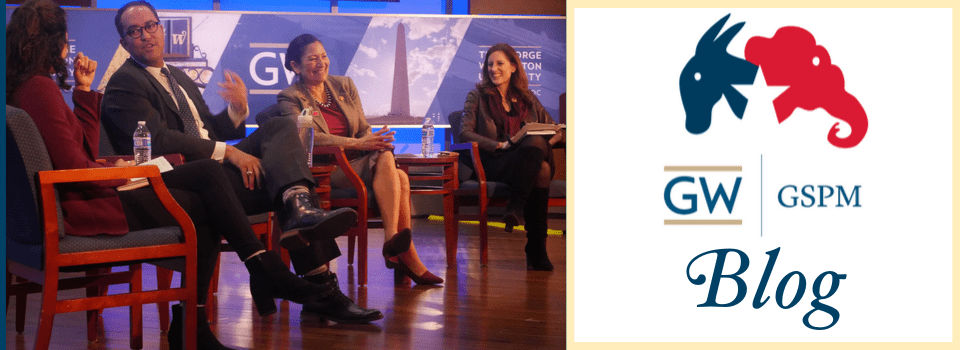The Graduate School of Political Management's social media monitoring research initiative, the PEORIA Project, released three new pieces on the impact twitter is having on politics and communications.
The first, published in the Washington Post, detailed rise and continued strength of the #MeToo movement. Researchers found that while #MeToo had been an activist hashtag on social media for some time, it exploded after the Harvey Weinstein sexual harassment news. The reach and volume, in effect how many people saw the hashtag and how often they saw it, grew at least in part because well-known public figures were sharing their stories of harassment for the first time. Read more at the Washington Post.
Secondly, the PEORIA Project released its first quarterly report. Among the many findings, lead researcher Dr. Michael Cohen found that Congressional incumbents in close races should try their best to stay out of Twitter's glare. Two of the top mentions on political twitter in this category, Sen. Jeff Flake (R-CA) and Rep. Darrel Issa (R-CA), have already announced that they will not seek reelection to their seats in November. Read the full report on our website.
Lastly, the project also published its most recent ECHO report. In it, Cohen found that in the battle over who deserves blame over the government shutdown that started last week, Twitter found President Donald Trump more at fault than Senate Minority Leader Chuck Schumer. Read the full report at US News.
As we get closer to the election, we expect to find more insights into the ways in which social media shapes and amplifies political messages, and the PEORIA Project will bring them to you. Be sure to subscribe to our PEORIA Project newsletter here.



